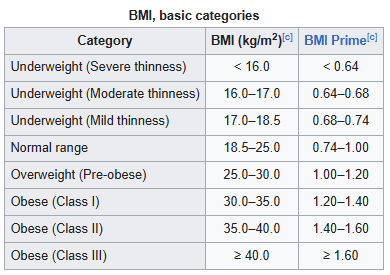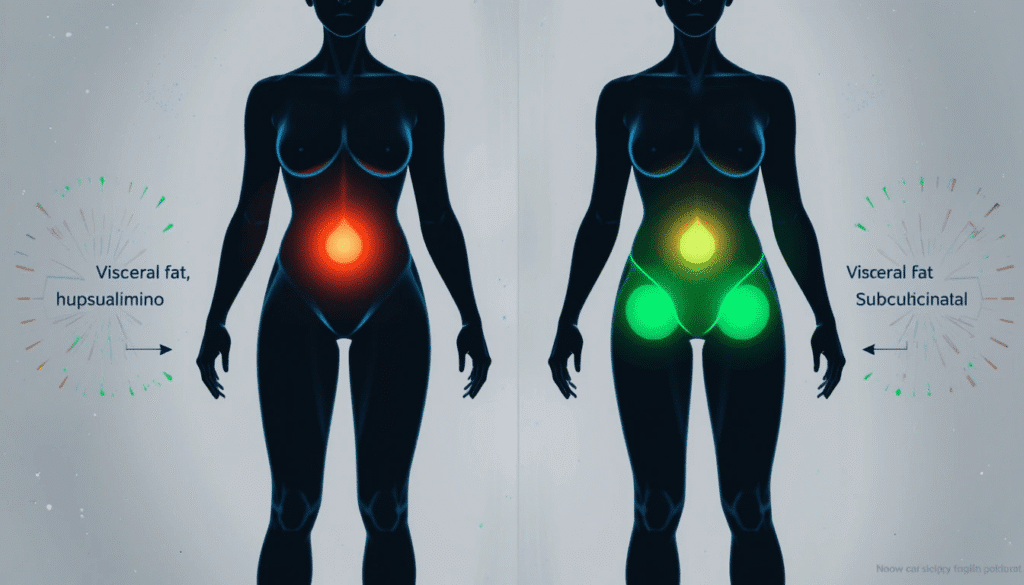The Ultimate Guide to BMI: Understanding Your Body Mass Index for Better Health
Advanced BMI Calculator
Your Measurements
Your Results
Health Comparison
Enter your measurements and click Calculate to see your results
Your Weight Goal Plan
BMI Categories
Daily Calorie Needs
Based on activity level:
What Exactly Is BMI? The Science Behind the Numbers
Body Mass Index is a simple calculation that measures your body fat based on your height and weight. Developed in the 1830s by Belgian mathematician Adolphe Quetelet, BMI was originally called the Quetelet Index. It wasn’t until 1972 that researcher Ancel Keys coined the term “Body Mass Index” in his study published in the Journal of Chronic Diseases, which confirmed BMI as the most effective weight-for-height index.
The formula is straightforward:
Metric: BMI = weight (kg) ÷ height² (m²)
Imperial: BMI = (weight (lbs) ÷ height² (in²)) × 703
Despite its simplicity, this calculation provides valuable insights into health risks associated with body weight. The World Health Organization (WHO) has established standard BMI categories that help healthcare professionals worldwide assess weight-related health risks:
Underweight: BMI less than 18.5
Normal weight: BMI 18.5–24.9
Overweight: BMI 25–29.9
Obesity: BMI 30 or greater
The Often-Overlooked Dangers of Low BMI
While much attention focuses on obesity, being underweight carries its own health risks:
Nutritional deficiencies: Inadequate body fat can signal insufficient nutrient intake
Weakened immune system: Research shows underweight individuals take longer to recover from illness
Osteoporosis: Low body weight often correlates with reduced bone density
Fertility issues: Women with very low BMI may experience menstrual irregularities
The Psychological Impact of Weight
The relationship between weight and mental health is complex and bidirectional. Studies in the Journal of Health Psychology indicate that:
Weight stigma can lead to depression, anxiety, and low self-esteem
Emotional health challenges can contribute to disordered eating patterns
Positive body image, regardless of BMI, correlates with better mental health outcomes
Calculating Your BMI Accurately: Best Practices
For the most accurate BMI calculation:
Measure height without shoes against a flat surface
Weigh yourself in the morning before eating or drinking
Use a digital scale on a hard, flat surface
Consider recent weight fluctuations – if you’ve recently gained or lost weight dramatically, wait until your weight stabilizes
Our advanced BMI calculator accounts for these factors and provides additional metrics like BMR (Basal Metabolic Rate) and body fat estimates for a more comprehensive health assessment.
Why BMI Matters More Than You Think
In our health-conscious world, Body Mass Index (BMI) has become a household term, but how many of us truly understand what it means for our wellbeing? Beyond being just a number, BMI serves as a crucial health indicator that can predict potential health risks and guide us toward better lifestyle choices.
As a society increasingly focused on data-driven health decisions, understanding your BMI is more important than ever. Research from the American Journal of Clinical Nutrition reveals that maintaining a healthy BMI can add up to 7 years to your life expectancy while significantly improving your quality of life.
This comprehensive guide will explore the science behind BMI, its limitations, and how to use this valuable metric as part of a holistic approach to health. Whether you’re beginning your wellness journey or looking to optimize your current health strategy, understanding BMI is your first step toward informed health decisions.
Beyond the Number: What Your BMI Really Means for Your Health
The Health Risks of High BMI
Carrying excess weight impacts nearly every system in your body. According to the National Institutes of Health, individuals with a BMI over 25 face increased risk for:
Cardiovascular disease: Excess weight forces your heart to work harder, increasing blood pressure and cholesterol levels
Type 2 diabetes: Obesity can cause insulin resistance, affecting how your body processes blood sugar
Certain cancers: The CDC reports that obesity is associated with higher risk of 13 types of cancer, including breast, colon, and kidney cancer
Sleep apnea: Extra weight around the neck can obstruct breathing during sleep
Osteoarthritis: Additional weight places stress on weight-bearing joints
A landmark study published in The Lancet that followed over 10 million people found that those with BMI over 40 had their life expectancy reduced by up to 10 years.
The Limitations of BMI: What It Doesn’t Tell You
While BMI is a valuable screening tool, it doesn’t provide a complete picture of your health. Important considerations include:
Muscle Mass vs. Fat Mass
BMI doesn’t distinguish between muscle and fat. Athletes with high muscle mass may have a high BMI but low body fat percentage. Conversely, someone with a “normal” BMI might have unhealthy levels of visceral fat (fat around organs).
Body Composition Variations
Ethnic differences: Research shows that Asian populations may face health risks at lower BMI levels, while Pacific Islanders may be healthy at slightly higher BMIs
Age factors: Older adults typically have more body fat than younger people with the same BMI
Sex differences: Women generally have more body fat than men at the same BMI
The Importance of Fat Distribution
Where your body stores fat matters more than total fat amount. Apple-shaped individuals (carrying weight around the abdomen) face higher health risks than pear-shaped individuals (carrying weight around hips and thighs), even at the same BMI.
Beyond BMI: Other Important Health Metrics
While BMI provides valuable information, it’s most effective when considered alongside other health indicators:
Waist-to-Hip Ratio (WHR)
This measurement assesses fat distribution. A WHR over 0.85 for women or 0.90 for men indicates abdominal obesity and increased health risks.
Waist Circumference
A waist measurement over 35 inches for women or 40 inches for men suggests increased health risks regardless of BMI.
Body Fat Percentage
This provides a more direct measurement of body composition. Healthy ranges are:
Women: 20-32%
Men: 10-22%
Metabolic Health Markers
Blood pressure, cholesterol levels, and blood sugar levels provide crucial information about how your weight affects your health.
Strategies for Achieving and Maintaining a Healthy BMI
Nutrition Strategies That Work Long-Term
Research from the American Journal of Clinical Nutrition shows that sustainable weight management focuses on dietary quality rather than restrictive dieting:
Prioritize whole foods: Fruits, vegetables, whole grains, and lean proteins
Practice mindful eating: Pay attention to hunger and fullness cues
Stay hydrated: Sometimes thirst masquerades as hunger
Plan meals: Reduces impulsive eating decisions
The Role of Physical Activity
The WHO recommends at least 150 minutes of moderate-intensity or 75 minutes of vigorous-intensity physical activity weekly, plus muscle-strengthening activities twice weekly. Exercise not only helps weight management but also improves metabolic health independently of weight loss.
The Importance of Sleep and Stress Management
Often overlooked aspects of weight management include:
Sleep quality: Research shows that sleeping less than 7 hours per night disrupts hunger hormones and increases obesity risk
Stress management: Chronic stress elevates cortisol, which can promote abdominal fat storage
Behavioral Approaches
Successful long-term weight management often incorporates:
Self-monitoring: Tracking food intake, exercise, and weight
Goal setting: Specific, measurable, achievable, relevant, and time-bound (SMART) goals
Social support: Engagement with supportive communities or professionals
When to Seek Professional Guidance
While BMI calculators provide helpful information, consult healthcare professionals if:
Your BMI falls into the obese or underweight categories
You have unexplained weight changes
You have existing health conditions affected by weight
You need personalized nutrition and exercise guidance
Registered dietitians, certified personal trainers, and healthcare providers can help develop individualized plans that consider your unique health profile, preferences, and lifestyle.
The Future of BMI: Emerging Research and Technologies
BMI assessment continues to evolve with new technologies:
3D body scanning: Provides detailed body composition analysis
Bioelectrical impedance analysis (BIA): Measures body fat percentage more accurately
Genetic testing: Identifies individual predispositions to weight-related conditions
Wearable technology: Tracks real-time metabolic data and activity levels
Researchers are also developing more nuanced assessment tools that better account for body composition, fat distribution, and ethnic variations.
Conclusion: BMI as a Starting Point, Not a Destination
Understanding your BMI is an important first step in taking control of your health, but it’s just one piece of the puzzle. The number on the scale tells only part of your health story—how you feel, your energy levels, your metabolic health markers, and your overall wellbeing are equally important.
Rather than fixating on achieving a “perfect” BMI, focus on developing sustainable habits that support your health regardless of the number. Small, consistent changes often yield more significant long-term results than drastic measures that are difficult to maintain.
Remember that health looks different on everyone, and the journey to wellbeing is personal. Use tools like our advanced BMI calculator as guides rather than judges, and always approach health decisions with self-compassion and evidence-based information.
Your BMI is a snapshot of your current health status, but it doesn’t define your health potential. With the right knowledge, support, and strategies, you can make meaningful changes that enhance your quality of life today and for years to come.
BMI Questions Answered
Simple, practical answers to the most common BMI questions





